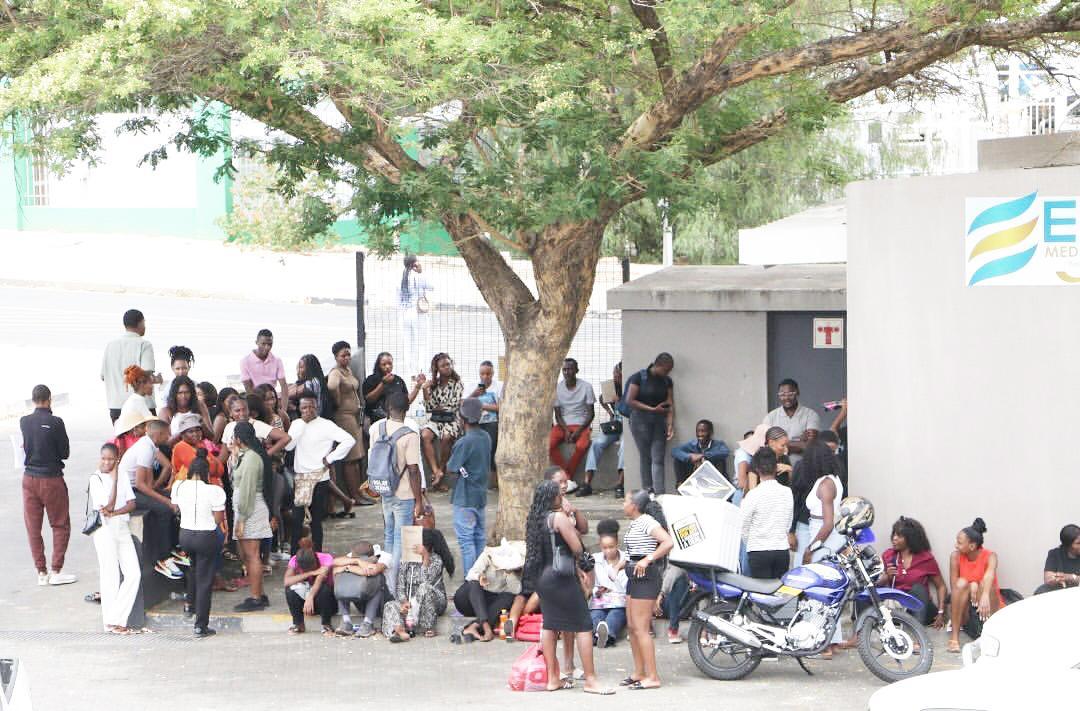Africa-Press – Namibia.
Fuelled by a hefty injection of N$257 million for the 2025/26 financial year, the long-awaited National Youth Entrepreneurship Fund (NYEF) is finally shifting into top gear, with its official implementation phase expected to kick off this month.
After running a one-month pilot phase that ended on 4 September, the fund has already tested the waters by gauging youth interest in entrepreneurship, evaluating applicants’ planning and writing abilities, and measuring overall readiness for the nationwide roll-out.
According to Ministry of Finance spokesperson Wilson Shikoto, the trial phase provided crucial insights that would allow the programme to unfold more seamlessly.
Hosted within the finance ministry, the fund will not disburse money directly but will channel the resources through established development finance institutions. These are the Development Bank of Namibia, the Environmental Investment Fund, Agribank and NamPost, all of which will operate under uniform lending conditions.
This approach, officials say, will ensure financing reaches deserving youth
enterprises swiftly, fairly and with far less red tape.
Shikoto confirmed the launch was imminent: “It has to be finalised as soon as possible. The launch is planned in September. Whatever we receive from the regions, the financial institutions need to quickly assess and guide us through.
Behind the fund lies a much larger vision: the mobilisation of a N$500 million endowment capital aimed at empowering the country’s youth to start, sustain and expand businesses across multiple sectors of the economy.
Minister of finance, Ericah Shafudah, explained that the roll-out would be supported by mentoring, coaching and advisory services, while strict monitoring and evaluation systems would measure the Fund’s effectiveness and long-term impact on jobs and entrepreneurship.
Based on early projections, the first phase is expected to support at least 350 youth-owned enterprises and create more than 4 000 employment opportunities. The financial support will vary according to business stage and scale. Start-ups will be eligible for loans ranging from N$60 000 to N$200 000 at two percent interest. More established businesses will qualify for between N$200 000 and N$800 000 at three percent interest. Enterprises at an advanced stage will have access to up to N$1 million at a rate of four percent.
Each of these loans comes with a 12-month grace period and a repayment term of five years, allowing young entrepreneurs time to stabilise before repayment begins.
Importantly, the financing model is designed to be inclusive. Collateral requirements will be limited to project assets, expected cashflows and personal suretyships, while those without assets will still be able to access funding through collateral-free options. To ensure sustainability, interest generated from the fund will be reinvested on a revolving basis, strengthening its capital base while also attracting additional financing from external partners.
The fund’s allocations will be spread carefully to avoid over-concentration in any one area. Roughly half of the resources will be distributed through lending channels, 35% will be preserved as endowment capital, and 15% will be set aside for grants. Within this mix, marginalised communities and young people with disabilities are guaranteed at least 15% of the portfolio, with the grant component potentially increasing their share to 25%.
The fund will prioritise sectors with strong potential for job creation and innovation with information and communication technology, renewable energy, agro-processing, tourism and hospitality, as well as the creative industries — such as music, film and fashion — to be targeted.
Special attention will also be given to projects tackling food security, malnutrition, sanitation and hygiene.
Shafudah noted that while services, trade and small-scale manufacturing would receive a larger allocation, projects outside the priority sectors would not be excluded, as long as they demonstrate viability, innovation and a clear ability to create jobs.
For many young Namibians, the fund represents not just financial support, but also a long-awaited opportunity to transform bright ideas into thriving enterprises, while driving economic growth and broad-based empowerment across the country.
For More News And Analysis About Namibia Follow Africa-Press






